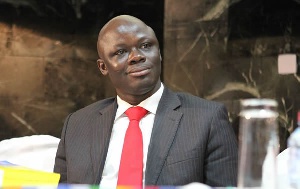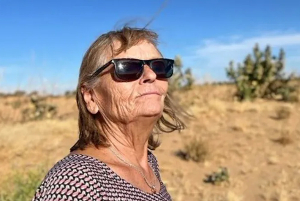There is currently no law in Ghana’s statute books that spells out how to delete from the register of voters the names of voters who used their National Health Insurance Scheme (NHIS) cards as proof of their nationality in getting registered, private legal practitioner Samson Lardy Anyenini has said.
Ghana’s Supreme Court recently ruled that the Electoral Commission expunges names of such persons from the electoral roll since the same court had earlier ruled that NHIS cards could not be used as proof of one’s nationality in registering, even though at the time of the registration, Constitutional Instrument (C.I. 72) allowed prospective registrants to use the card as a means of proving their nationality.
Apart from those who used their NHIS cards to get registered, the Supreme Court, in its recent ruling in a case between the PNC’s Abu Ramadan and the EC, ordered that the names of minors and foreigners also be removed from the register. In the case of NHIS card holders, the court said they must be given another opportunity to register with the appropriate ID cards.
The EC on Thursday, May 19 issued a statement saying it could not arbitrarily delete the names of those who registered with their NHIS cards since the ruling did not automatically render their registration void. “For persons who registered with NHIA cards, such registrations were lawful at the time of registration, and the subsequent declaration of unconstitutionality in the earlier Abu Ramadan case, does not ‘automatically render them void’” the EC interpreted the ruling as meaning.
The statement, signed by Deputy Chair Georgina Opoku Amankwaa, said such a position, according to the Supreme Court, “would have the effect of disenfranchising the persons affected”, adding: “Such registrations should only be deleted by means of processes established under the law.”
The EC further said it would have to go through appropriate procedures as stipulated by law in deleting any name from the register. “It must be noted that the EC, by itself, has no power under any law currently in force to unilaterally delete the names of persons from the register. For the avoidance of doubt, we wish to state that under the existing and applicable law, where a person’s registration is challenged during a registration process, that challenge must be referred to a District Registration Review Committee (DRRC) for determination,” it said.
“The EC is only permitted to act on the decision of the DRRC following the determination of the challenge to delete or maintain the name of the challenged person on the register. Similarly, for persons who are already on the Provisional Register, the law requires that an objection is made during the exhibition process either by a registered voter or an official of the Commission. These objections are then referred to the District Registration Review Officer (DRRO) for determination. The Commission is required by the law to act on the decision of the DRRO following determination of the objection.
“As an institution that derives its existence from the law, the Electoral Commission cannot be seen to be acting arbitrarily. We are delighted that the Supreme Court agrees with us on this position. In complying with the directives of the Apex Court, the Commission intends to fully follow the applicable law,” the statement clarified.
Speaking about the EC’s position on the Executive Breakfast Show on Class91.3FM, Mr. Anyenini said from the Supreme Court’s ruling, “…It is very clear; the court says delete them. Delete who? Delete NHIS card holders, but it says delete them by means of what? Law! A process that is allowed by the law.
“As we speak, there is no process, there is no law that provides for how to delete NHIS card holders. So, the deduction or interpretation made by the EC is that it finds that yes, the court may have said this, but if you proceed further, they suggest that those people did not commit any crime because they registered in good faith, because C.I. 72 was in existence and C.I. 72 made provisions for what you can use as identification for registration and those documents of identification included NHIA cards and they used them, so, if the court now says and orders us [EC] to do deletions, and we should do deletions using established law, we can’t find any law presently that provides for how to delete NHIS card holders.
“The law that exists now provides for how to delete persons who registered as minors, persons who are dead, persons who may have been foreigners and found themselves on the register, but there is a process, and the process has to go through a certain challenge and certain committees and eventually have the deletion done or the process includes even a court having to hear and make a determination and make an order before the names can be struck out.”
General News of Saturday, 28 May 2016
Source: classfmonline.com
No law exists for expunging ‘NHIS voters’ – Anyenini
Entertainment












